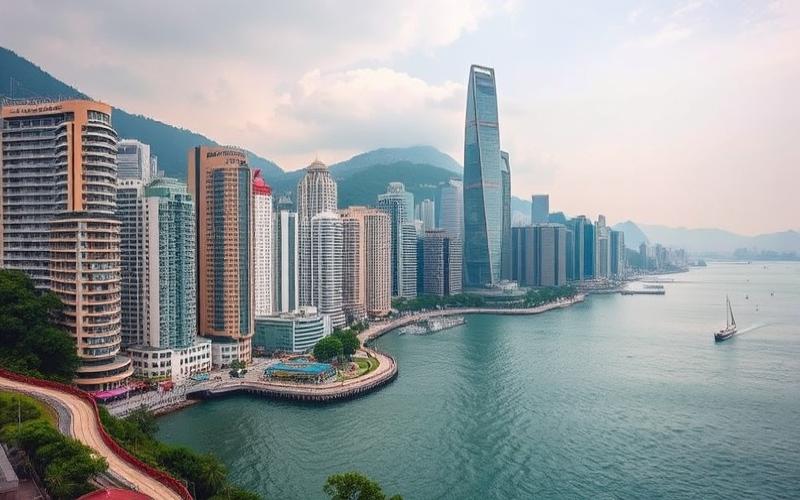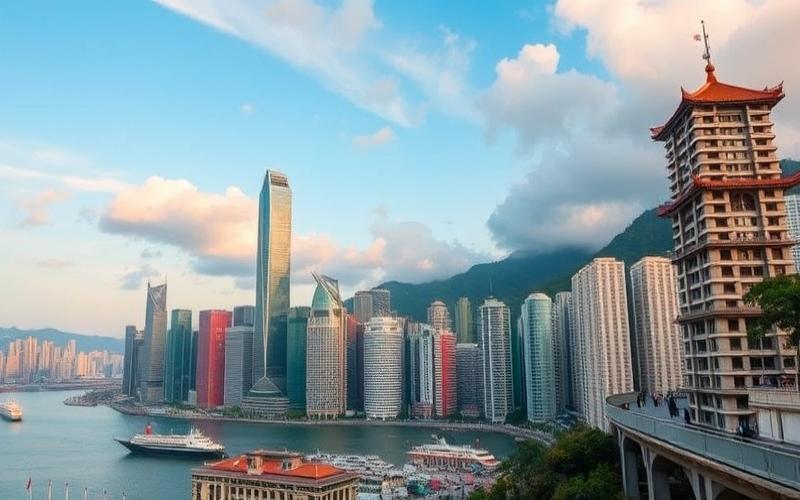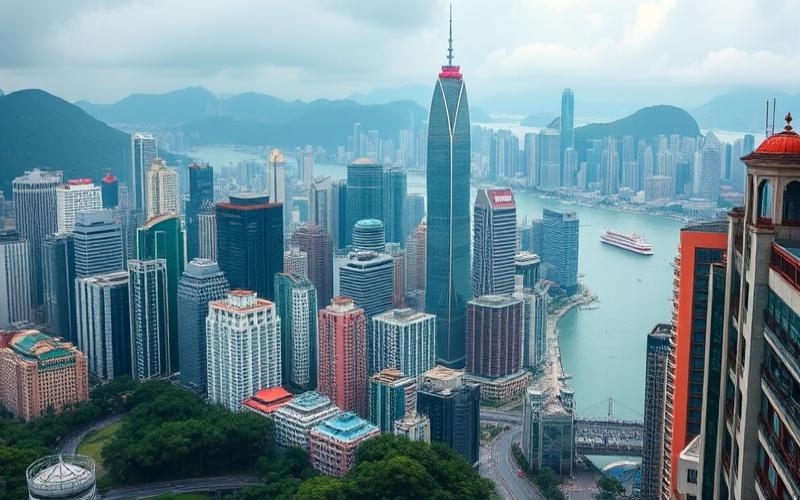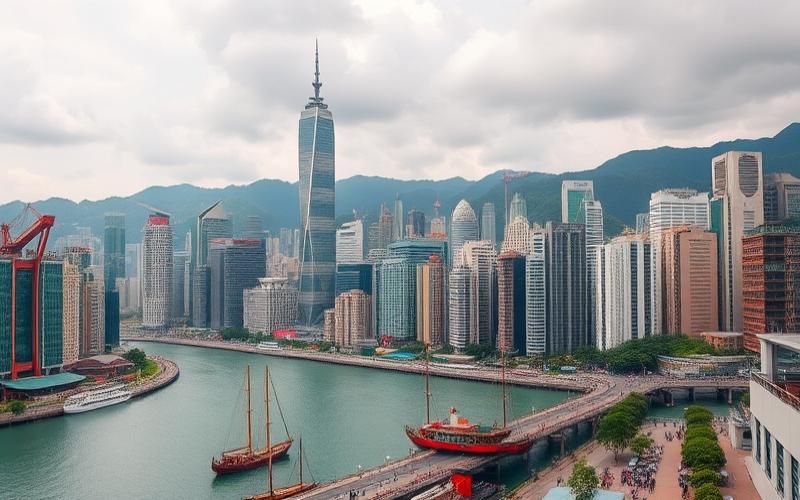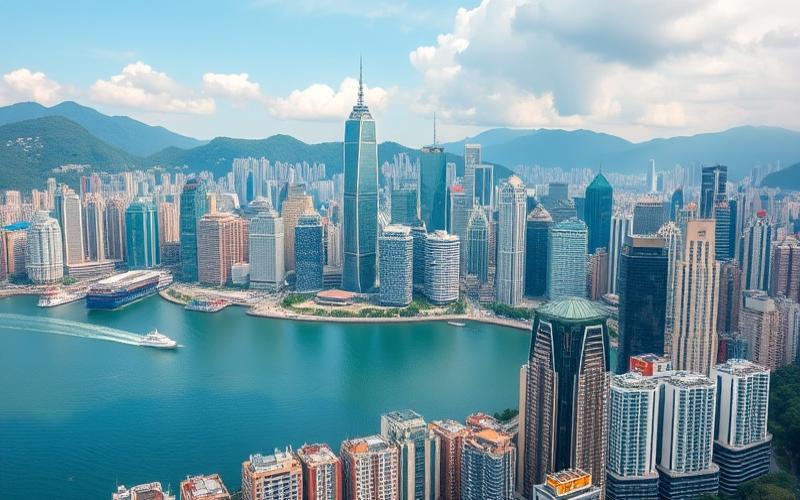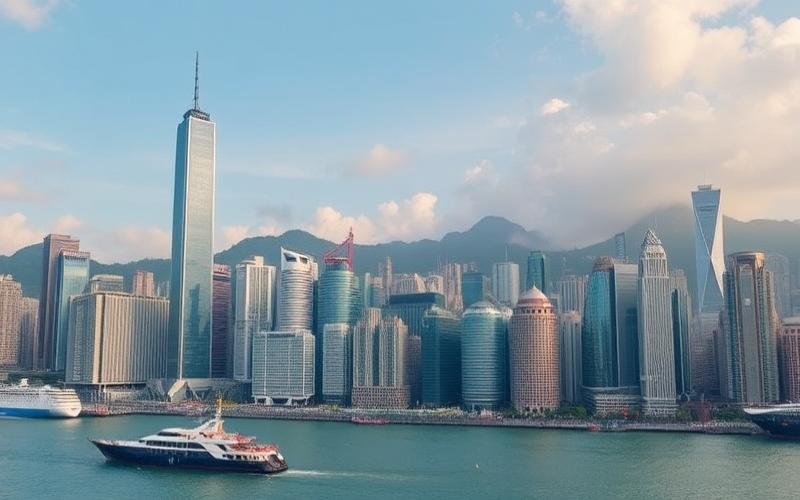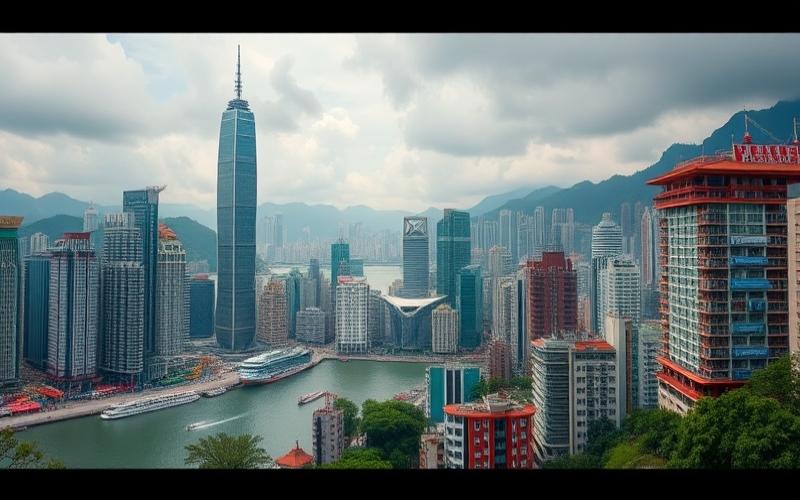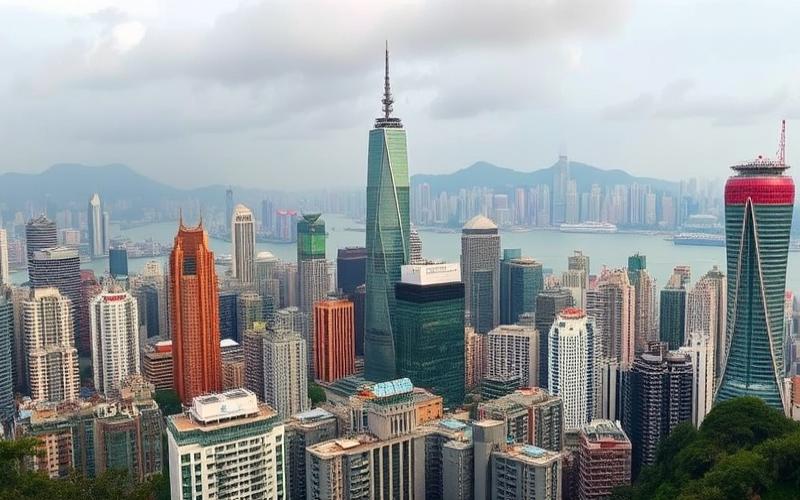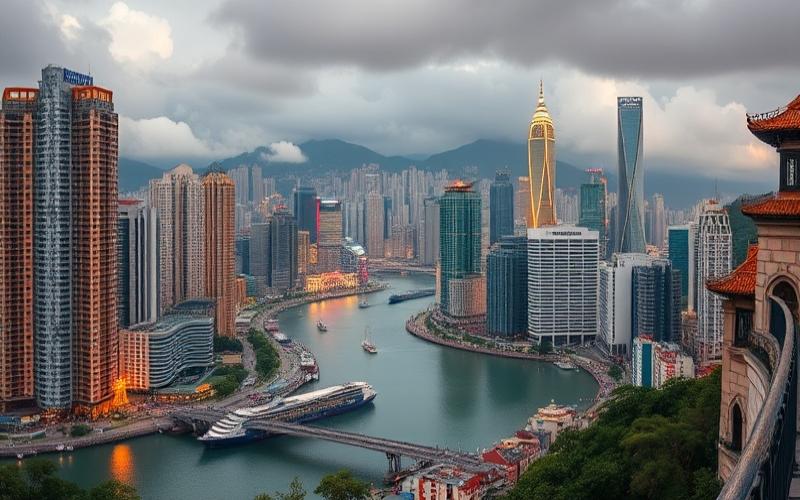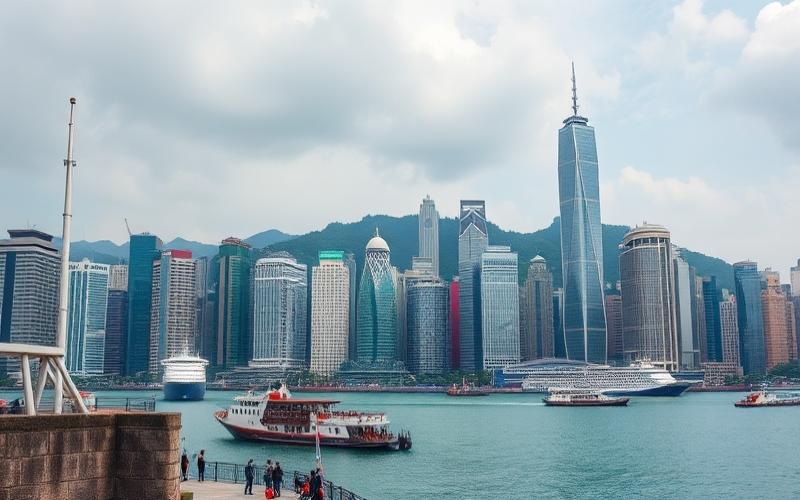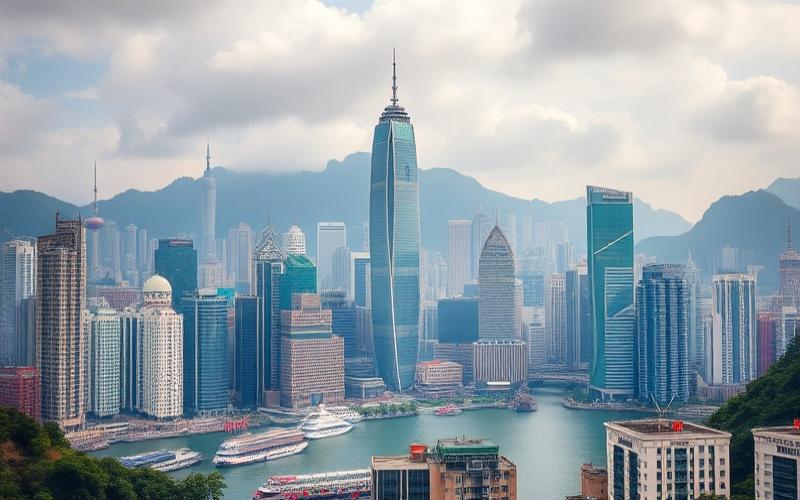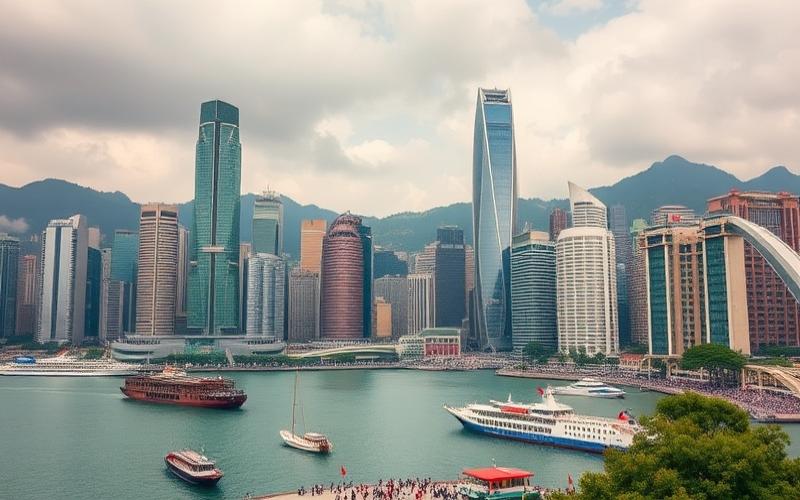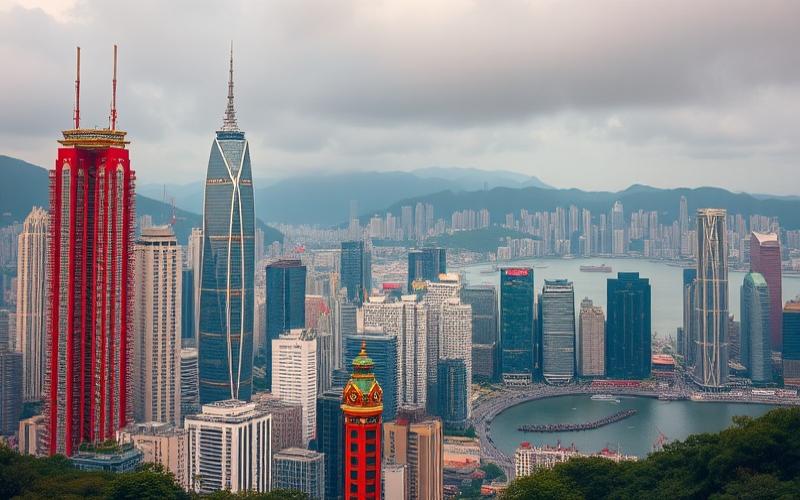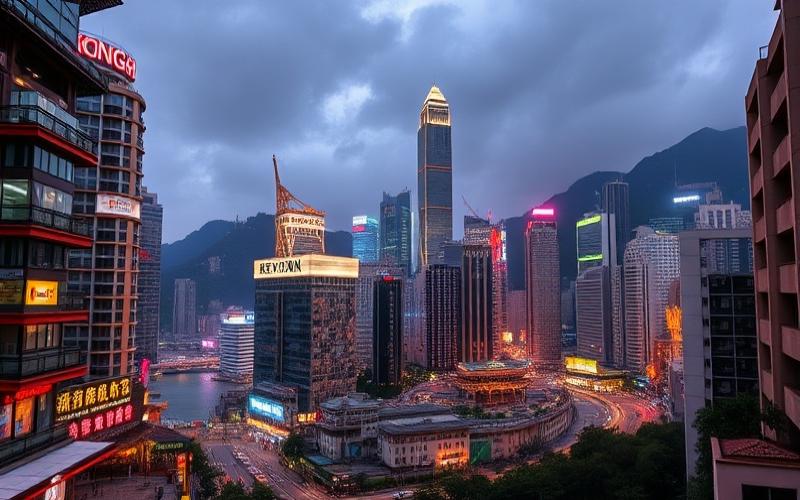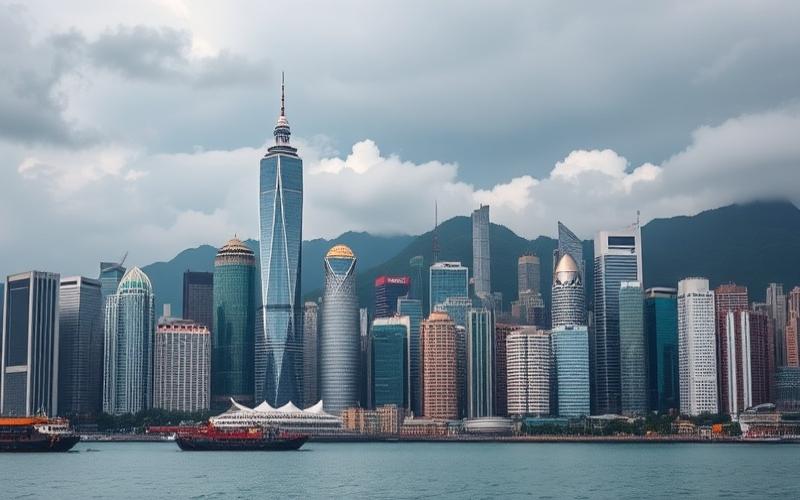
 Published on and written by Cyril Jarnias
Published on and written by Cyril Jarnias
Buying a Hotel in Hong Kong: A Strategic Investment Opportunity
Buying a hotel in Hong Kong represents an enticing investment for entrepreneurs seeking opportunities in one of Asia’s most dynamic and competitive real estate markets.
However, this process is filled with unique complexities that require meticulous preparation.
Through this comprehensive checklist, potential buyers can navigate through various essential legal and financial aspects, taking into account Hong Kong’s cultural and economic particularities.
Whether you’re a seasoned investor or new to this flourishing sector, this list will provide you with the necessary tools to transform your hotel project into a profitable and successful venture.
Good to know:
Hong Kong offers a favorable tax framework with low tax rates and no VAT, making it a privileged location for hotel investments.
Hong Kong Hotel Market Overview
Hong Kong has experienced steady growth in hotel demand since early 2025, supported by the recovery of international tourism and major events organized in the city. The number of international tourists reached 8.4 million during the first two months of the year, up 9.4% year-over-year. Mainland China represents 77% of this clientele. This dynamic has enabled continuous improvement in occupancy rates and RevPAR (revenue per available room).
Supply and Demand Status
- No new hotels were delivered in the first quarter of 2025, but 1,589 additional rooms are expected by year-end.
- Supply remains dominated by strong competition between international chains and local brands.
- Despite the recovery, hotel investment activity remains moderate: only two hotel transactions in Q1 2025, for a total amount of 0.9 billion HKD. However, the gap between buyer and seller prices is narrowing, suggesting accelerated transactions in the second half of the year.
Key Hong Kong Hotel Sector Data (2025)
| Indicator | Value (Q1 2025) |
|---|---|
| International tourists | 8.4 million (YTD Feb.) |
| Share of Chinese tourists | 77% |
| New rooms expected 2025 | 1,589 |
| Hotel transactions Q1 | 2 deals, 0.9B HKD |
| Projected tourism spending 2025 | 7.1B USD |
| Expected growth (CAGR 2025-2035) | 8.3% |
Economic Factors and Trends
- Hong Kong’s economy benefits from the return of international events (Hong Kong Sevens, Art Basel, festivals, etc.) and active tourism promotion through targeted campaigns.
- Transportation infrastructure (new airport terminal, West Kowloon Station, Kai Tak Sports Park) improves connectivity and capacity.
- The hotel market is evolving toward more diversified tourism: wellness, culinary experiences, ecotourism, and cultural tourism are replacing luxury shopping.
Key Areas for Hotel Development
- Kowloon (particularly Tsim Sha Tsui): traditional tourist hub, close to new facilities and the port.
- Central & Western District: business and luxury orientation, proximity to financial and cultural centers.
- North Point and West Kowloon: emerging areas thanks to new urban projects and rail service.
- Lantau Island: development focused on leisure tourism, proximity to airport and Disneyland.
Seasonal Variations
- High activity during Lunar New Year and major sports or cultural events.
- Relative decrease in attendance during off-peak periods outside major events or school holidays.
Challenges and Opportunities for Investors
Challenges
- Demand volatility linked to geopolitical tensions and dependence on Chinese clientele.
- Limited growth in hotel supply in the short term, with high barriers to entry.
- Margin pressure due to competition and high operating costs (salaries, energy, property taxes).
Opportunities
- Repositioning hotels toward niche segments (wellness, ecotourism, local experience).
- Leveraging growth in business and convention tourism, supported by new facilities.
- Potential for property appreciation in transforming neighborhoods (West Kowloon, North Point).
Growth Prospects
- Tourism spending is expected to reach 7.1 billion USD in 2025 and 15.9 billion USD by 2035, with a CAGR of 8.3%.
- Diversification of visitor profiles and infrastructure improvements should support sustainable growth in the hotel sector.
- Investors attentive to evolving traveler expectations and new developing neighborhoods can benefit from significant opportunities in the Hong Kong market.
Numerical Summary (2025-2035)
| Year | Tourism Spending (B USD) | Estimated CAGR |
|---|---|---|
| 2025 | 7.1 | 8.3% |
| 2035 | 15.9 |
Hong Kong’s hotel market, in full transformation, offers strong growth potential, driven by tourism recovery, supply diversification, and infrastructure modernization, but remains subject to structural and cyclical challenges.
Good to know:
Hong Kong’s hotel market, marked by post-pandemic growth, shows demand strengthened by increased international and regional tourism, particularly from mainland China. The shortage of supply in prime areas like Central and Tsim Sha Tsui stimulates the development of new establishments. Tourism, a major driver of the local economy, particularly increases demand during seasonal peaks, such as Chinese New Year and summer vacations. Challenges include global economic fluctuations and strict local regulations, although recent government initiatives in transportation and infrastructure offer optimistic prospects for continued sector growth. According to a recent report, an annual 3% increase in tourist traffic is expected, creating significant opportunities for new investors ready to navigate this dynamic market.
Taking Over a Hotel in Hong Kong: Essential Steps
Process for Finding a Hotel to Acquire
Acquiring a hotel in Hong Kong begins with identifying opportunities that match your investment objectives. Preferred geographic areas include:
- Kowloon (Yau Ma Tei, Tsim Sha Tsui): high tourist traffic, proximity to shops and attractions.
- Hong Kong Island (Central, Causeway Bay, Wan Chai): business and leisure clientele, proximity to transportation.
- Tsing Yi and surrounding areas: growth potential, proximity to airport and logistics infrastructure.
To identify hotels for sale, prioritize:
- Real estate agents specialized in commercial hospitality.
- Professional platforms and specialized websites.
- Public auctions or judicial sales, often for distressed establishments.
- Local professional network (lawyers, consultants, hotel associations).
Legal and Regulatory Considerations
Taking over a hotel in Hong Kong involves complying with several obligations:
- Mandatory licenses:
- Hotel and Guesthouse Licence issued by the Office of the Licensing Authority.
- Fire safety permits, compliance with health standards and accessibility.
- Tax obligations:
- Payment of Stamp Duty on property acquisition.
- Profits Tax on operating income.
- Declarations to the Inland Revenue Department.
Comprehensive Due Diligence
Prior analysis is essential to limit risks:
- Financial aspects:
- Analysis of financial statements over several years.
- Study of occupancy rate, RevPAR (revenue per available room), profit margins.
- Legal aspects:
- Verification of property titles, existence of disputes, license compliance.
- Operational aspects:
- Condition of infrastructure (building, equipment).
- Current contracts (suppliers, staff).
- Online reputation and customer satisfaction history.
Table: Key Due Diligence Elements
| Domain | Points to Verify |
|---|---|
| Financial | Revenue, debts, fixed costs, profitability |
| Legal | Titles, licenses, litigation, contracts |
| Operational | Building condition, equipment, supplier/staff contracts |
Ways to Finance the Purchase
- Bank loans: subject to strong guarantees and a detailed business plan.
- Financial partners: co-investors, private equity companies.
- Private investors: family offices, funds specialized in hospitality.
Management Transition Planning
A successful takeover requires controlled transition:
- Staff management: evaluation of existing teams, training plan, communication on strategy.
- Infrastructure modernization: technical audits, investment plan, prioritization of renovations.
- Marketing strategy:
- Repositioning of offerings if necessary.
- Targeted campaigns to attract new customer segments.
- Proactive online reputation management.
Supplier Relationship Management and Quality Maintenance
- Supplier audit: assess reliability, quality, and competitiveness of existing contracts.
- Negotiation of new agreements if needed, to optimize costs.
- Implementation of quality standards: internal procedures, regular controls, customer feedback monitoring.
Practical tips for maintaining quality during takeover:
- Involve staff in quality initiatives.
- Establish performance indicators and satisfaction surveys.
- Organize regular internal audits to quickly detect improvement points.
Taking over a hotel in Hong Kong requires rigorous preparation, deep knowledge of the local market, and proactive management of the transition to ensure the investment’s sustainability and profitability.
Good to know:
To take over a hotel in Hong Kong, start by researching opportunities in prime neighborhoods like Central or Tsim Sha Tsui, using specialized real estate agents or monitoring public auctions. Ensure you understand legal obligations, including obtaining necessary operating licenses and compliance with local tax requirements. Comprehensive due diligence is crucial: analyze financial statements, current contracts, and infrastructure condition to assess profitability and identify potential risks. Finally, explore available financing options, such as bank loans or capital contributions from partners. Carefully plan the management transition, including training and integration of existing staff, potential facility improvements, and development of a new marketing strategy. Finally, build strong relationships with suppliers to guarantee maintenance of service quality.
Hospitality Due Diligence in Hong Kong: Practical Tips
Due diligence in the context of acquiring a hotel in Hong Kong refers to all the thorough checks and analyses conducted before finalizing the purchase, to ensure compliance, profitability, and risks associated with the operation. This step is essential to secure the investment and avoid surprises after the transaction.
Key Steps in Evaluating a Hotel in Hong Kong:
- Verification of licenses and permits
- Ensure the hotel possesses all operating licenses required by local regulations (Hotel and Guesthouse Accommodation Ordinance, Food Business Licenses, environmental permits, etc.).
- Verify absence of disputes or past infractions concerning authorizations.
- Analysis of financial statements
- Examine balance sheets, income statements, and cash flow statements from the last three to five years.
- Assess profitability, seasonality, and debt structure.
- Check consistency between reported figures and operational reality (occupancy rate, ADR, etc.).
- Audit of legal and environmental compliance
- Check compliance with local standards regarding safety, fire prevention, accessibility, and environment.
- Examine any past sanctions or litigation.
- Verify compliance with foreign investment legislation and land ownership rules.
- Evaluation of organizational structure
- Analysis of employment contracts, collective relations, social benefits, and any disputes with staff.
- Verification of ownership structure and shareholders.
- Verification of real estate assets
- Confirmation of land ownership, existence of mortgage charges or restrictions on transfer.
- Physical inspection of the establishment to assess general condition and CAPEX needs.
Synthetic Table of Due Diligence Steps
| Step | Main Objective | Specific Points of Attention for Hong Kong |
|---|---|---|
| Licenses and permits | Regulatory compliance | Hotel and Guesthouse Accommodation Ordinance, SFC if selling in units |
| Financial statements | Economic viability and profitability | Tourist season, occupancy rate, ADR |
| Legal/environmental compliance | Legal and environmental risks | Strict local standards, dense urban environment |
| Organization & HR | Social and operational stability | Local labor legislation |
| Real estate assets | Property security | Restrictions on foreign ownership |
Importance of Understanding Local Market and Tourism Trends:
- Analysis of occupancy rates, tourist demand (for example, 81% occupancy in 2023), and urban development trends.
- Anticipation of economic cycles and seasonality specific to Hong Kong, with a market sensitive to regional and international tourist flows.
- Monitoring of infrastructure projects or regulations likely to impact hotel attendance.
Practical Tips for Engaging Local Professionals:
- Use specialized lawyers in real estate and business law to secure the transaction and analyze regulatory compliance.
- Appoint local financial advisors for account auditing and evaluation of the hotel’s real value.
- Engage real estate appraisal experts and hospitality consultants to assess asset condition and operational potential.
- Involve a tax specialty firm to anticipate the tax impact of the transaction.
Concrete Examples of Challenges Encountered During Due Diligence in Hong Kong:
- Discovery of non-compliance in operating permits following recent regulatory changes (for example, reclassification of a hotel as a “collective investment scheme” by the SFC during unit sales).
- Risks related to land ownership, particularly the complexity of Hong Kong’s tenure system and potential presence of undisclosed charges during initial inspection.
- Rapid fluctuation of financial performance linked to exogenous factors (protests, pandemic, health measures).
- Limited access to certain documents or information, requiring intervention by local professionals to obtain reliable data.
Specific Hong Kong Regulations That May Affect Hotel Purchase:
- Hotel and Guesthouse Accommodation Ordinance (cap. 349): governs issuance and renewal of hotel licenses.
- Securities and Futures Commission (SFC): intervenes in case of hotel unit sales classified as collective investments, requiring prior authorization.
- Restrictions on fractional hotel sales since closure of certain legal loopholes in 2003.
- Specific taxes on commercial real estate transactions (Stamp Duty).
The success of hotel due diligence in Hong Kong relies on rigorous analysis, support from experienced local professionals, and deep knowledge of regulatory specifics and the local tourism market.
Good to know:
Due diligence, essential when buying a hotel in Hong Kong, involves several key steps, such as verifying all required licenses and permits, meticulous analysis of the establishment’s financial statements, and auditing its legal and environmental compliance. Understanding the local market and tourism trends is also crucial, as this can strongly influence future profitability. Engaging local professionals, such as lawyers and financial advisors, can facilitate the process and ensure compliance with Hong Kong’s specific regulations, which impose strict standards for fire safety and hygiene, for example. Challenges may arise, such as discovering hidden infrastructure failures or unresolved legal disputes, making thorough and well-informed inspection imperative.
Hong Kong Tourism Statistics and Their Impact on Hotel Investment
Hong Kong welcomed 44.5 million international visitors in 2024, a 31% increase compared to 2023, confirming a clear rebound in the tourism sector. This dynamic continued in 2025: between January and May, over 20 million arrivals were recorded.
| Month | Number of Arrivals (2025) |
| January | 4,742,066 |
| February | 3,667,671 |
| March | 3,818,512 |
| April | 3,847,934 |
| May | 4,078,938 |
Tourist Seasonality
- Seasonal peak: Flows are traditionally highest around major holidays like Chinese New Year (January/February) and the Labor Day Golden Week in early May.
- Low season: Summer often sees a slight slowdown due to humid weather.
Most Represented Nationalities
– The majority of visitors come from mainland China, followed by those from Southeast Asia, then Western markets.
– The Chinese share is dominant during festive periods related to the Chinese calendar.
Impact on Hotel Market
Main hotel indicators for Hong Kong (recent data)
| Indicator | Recent Trend |
| Occupancy rate | Sharply rising (>80%) during seasonal peaks |
| Average daily rate (ADR) | Steady growth since mid-2023 |
| Total hotel revenue (FY2024) | HK$195 billion |
- Occupancy rates have returned to or exceeded pre-pandemic levels during major events and national holidays.
- The average daily rate has increased thanks to recovery in international demand.
Annual evolution
(The level remains below the record reached before COVID.)
Influence on Hotel Investment Strategies
Key Opportunities:
- Strong demand for luxury/business hotels, particularly in Central and Tsim Sha Tsui.
- Growing interest in lifestyle/boutique hotels targeting young or international clientele seeking local authenticity.
Current Challenges:
– Increased competition in the mid-range segment with pressure on profit margins in some saturated areas.
Investor Preferences:
Simplified comparative table
| Hotel Type | Current Attractiveness for Investors |
| Luxury/high-end | Very high |
| Mid-range | Moderate |
| Budget/economy | Low except strategic locations |
Opportunities & Challenges for Potential Buyers
Opportunities
- Robust recovery favoring rapid appreciation of well-located hotel assets
- Local policies supporting regular organization of major cultural/sports events
Challenges
- High prices in the prime segment despite regional macroeconomic volatility
- Constant need for innovation facing changing post-pandemic expectations
Forecasts & Future Trends:
- Expected continuation of tourist number growth mainly from mainland China thanks to targeted promotions
- Gradual but moderate increase in hotel revenues anticipated until 2027
- Lifestyle/luxury segments expected to concentrate most new investments
⎯⎯⎯⎯⎯⎯⎯
ℹ️ The continuous influx and qualitative evolution of tourism reinforce the structural attractiveness of Hong Kong’s hotel market while requiring permanent strategic adaptation.
Good to know:
Tourist influx to Hong Kong has recovered after the pandemic, reaching approximately 26 million visitors in 2023, with peaks during Chinese festivals and the summer season. Tourists from China, the United States, and Australia constitute the main groups. This increased attendance has supported an average hotel occupancy rate of 85%, allowing an increase in room rates reaching 1,500 HKD on average. Investors are particularly attracted to luxury and boutique hotels, which record the highest revenues. However, the market must face the challenge of growing competition and adjust to changing expectations of Asian visitors, fond of unique experiences and sustainable ecosystems. Forecasts indicate continued tourism growth with promising opportunities for those betting on innovation and diversification of their offerings.
Disclaimer: The information provided on this website is for informational purposes only and does not constitute financial, legal, or professional advice. We encourage you to consult qualified experts before making any investment, real estate, or expatriation decisions. Although we strive to maintain up-to-date and accurate information, we do not guarantee the completeness, accuracy, or timeliness of the proposed content. As investment and expatriation involve risks, we disclaim any liability for potential losses or damages arising from the use of this site. Your use of this site confirms your acceptance of these terms and your understanding of the associated risks.



